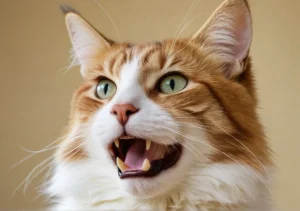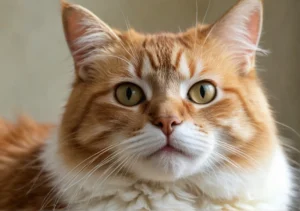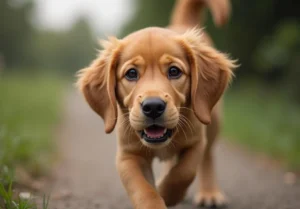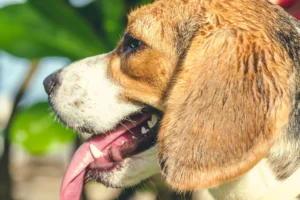Cats are full of surprises, and sometimes those surprises are as simple as a clicking jaw. It’s a curious sound that can leave pet owners questioning what’s really going on with their furry friend.
A clicking jaw can be a sign of various things, such as excitement while observing prey, dental issues, or even anxiety. But this quick answer opens the door to deeper insights, hinting at behaviors and health concerns that could be hiding in the background. Keep reading to unveil more about what that little click could mean for your cat.
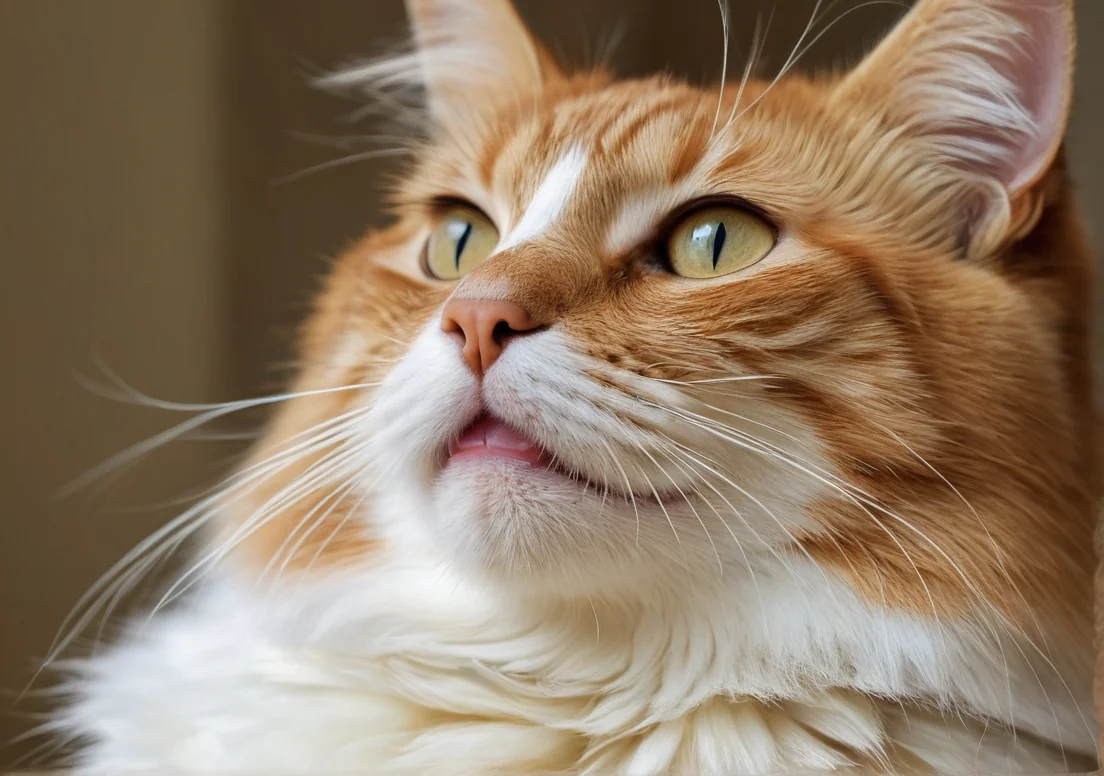
What Causes Jaw Clicking in Cats
Jaw clicking in cats can stem from a variety of causes, some as innocent as a quirk in behavior, while others might warrant closer attention.
One common reason is excitement or anticipation, especially if your cat sees birds or other prey outside. The clicking sound can be a response to their hunting instincts kicking in, almost like a predatory preparation.
Medical issues can also lead to jaw clicking. Some conditions, like dental problems, such as misalignment or pain due to tooth decay, can result in unusual jaw movements. It’s worth checking if your cat is showing signs of difficulty eating or discomfort.
Another potential cause is neurological conditions or even jaw muscle spasms. If there’s an underlying issue affecting your cat’s nervous system, it could manifest as jaw clicking.
Lastly, certain stimuli like loud noises or changes in their environment can make some cats anxious, leading to this behavior as a coping mechanism. Observing the context in which the clicking occurs can give valuable insights.
Is Jaw Clicking Normal Behavior?
Understanding whether jaw clicking is normal behavior for your cat involves appreciating the variety of feline personalities. In many cases, it can be a perfectly fine idiosyncrasy, particularly if it’s tied to their excitement or interest in something around them.
That said, if you notice your cat clicking her jaw frequently or out of context, it could signal something worth investigating. Here’s when jaw clicking might be deemed normal:
- Hunting Behavior: If your cat’s clicking coincides with her watching potential prey.
- Playfulness: During engaging play sessions, especially with wand toys.
- Curiosity: When your cat’s investigating new environments or items.
On the flip side, if you observe this behavior alongside signs like loss of appetite, lethargy, or difficulty grooming, it’s a red flag. Those signs paired with clicking could suggest dental issues or inherent nervous system problems, which aren’t typical behavior.
Paying close attention to timing and context will help you determine whether to just enjoy her quirks or seek veterinary advice. If in doubt, it’s always best to consult a vet for peace of mind.
Can Jaw Clicking Indicate Dental Problems?
Jaw clicking in cats can often point to underlying dental issues. When your cat clicks her jaw, it might be her way of expressing discomfort due to tooth decay, gum disease, or other oral health problems. Look out for these signs that might suggest dental trouble:
- Bad breath: A distinct unpleasant odor can indicate oral health issues.
- Drooling: Excessive drooling may be a sign of pain or discomfort.
- Difficulty eating: If your cat hesitates to chew or drops food, it’s a red flag.
- Swollen gums: Noticeable inflammation or bleeding can signal gum disease.
- Changes in behavior: If she’s more irritable or withdrawn, that might also be a sign of dental pain.
If you notice any of these symptoms in your cat alongside the jaw clicking, it’s wise to consult your vet. Regular dental check-ups and cleanings can help prevent these problems from impacting your cat’s health and happiness.
Does Jaw Clicking Mean My Cat is Anxious?
Anxiety manifests in cats in many ways, and jaw clicking can be one of them. If your cat’s clicking is paired with other signs of stress—like hiding, excessive grooming, or aggression—she might be feeling anxious. This behavior could be triggered by various factors, such as changes in the household, loud noises, or new pets.
One unique aspect of anxiety-related jaw clicking is that it can sometimes be a self-soothing mechanism. Just like humans might bite their nails when stressed, cats may click their jaws to cope with anxiety.
Understanding the environment around your cat is crucial. Consider these strategies to help ease her anxiety:
- Create a safe space: Provide a quiet area with her favorite toys and blankets.
- Keep a routine: Consistency in feeding and playtimes can help her feel more secure.
- Interactive toys: Engaging her with puzzles or toys can distract from stressors.
- Calming aids: Consider cat pheromone diffusers or supplements designed to reduce anxiety.
Taking the time to observe your cat’s behavior in different situations can reveal patterns that lead to jaw clicking, helping you address her anxiety effectively.
Should You Worry About Your Cat’s Clicking Jaw?
A clicking jaw in cats can be concerning, but it’s not always a cause for alarm. This behavior may stem from a few different factors, and understanding them can help you gauge whether you need to consult a vet.
If your cat is clicking her jaw sporadically while observing birds or during play, it’s often linked to her hunting instincts. However, if the clicking is persistent and accompanied by other symptoms—like drooling, difficulty eating, or signs of pain—it’s wise to seek professional advice. Potential underlying issues could include dental problems, jaw misalignment, or even neurological concerns.
It’s always best to err on the side of caution. Keep an eye on her behavior, and if you notice any accompanying symptoms like those mentioned above, don’t hesitate to schedule an appointment. Your vet can provide a thorough examination and peace of mind.
What Role Does Hunting Play in This Behavior?
Many pet owners notice that their cats click their jaws when they’re fixated on something, like a bird outside the window or during a good old-fashioned toy hunt. This instinctual behavior is deeply rooted in a cat’s natural hunting system. When a cat spots prey, you might see her mouth begin to move in a clicking motion—a behavior sometimes referred to as “chattering.”
This jaw motion is thought to mimic the sound of a bird or chipmunk, and it serves a dual purpose: it helps the cat prepare for the kill by tightening jaw muscles and brings her excitement to a fever pitch as she zeroes in on her target.
In addition to this, the clicking can result from:
- Anticipation: The excitement of the hunt can make her jaw move involuntarily.
- Mimicking Prey Sounds: As mentioned, it’s like her way of calling the prey closer.
- Behavioral Playfulness: Sometimes, it’s all in good fun during playtime, even if the “prey” is just a feather toy.
Keep in mind that if this behavior shifts or becomes excessive, it might warrant a closer look. Overall, though, think of the clicking as a quirky reminder of your cat’s wild ancestry.
Are There Other Sounds Cats Make Related to Jaw Clicking?
Jaw clicking in cats isn’t just a standalone sound; it often comes with an interesting mix of vocalizations and behaviors. Besides clicking, you might hear chattering, which is a bit like stuttering combined with those teeth clacking sounds. This often occurs when your cat is observing birds or other small prey from a window. It’s as if they’re giving a voice to their predatory instincts, contemplating the chase.
Some cats might also accompany jaw clicking with a low growl or a hiss, especially if they’re feeling threatened or unsure. These sounds can indicate a cat that’s both excited and anxious, wishing to engage but also expressing caution. Additionally, it’s not uncommon for some kitties to create a sort of trill or chirp sound along with clicking, which adds an extra layer to their communication. It’s their way of saying, “Hey, look over there!” while also showing mixed feelings about the situation.
If your cat is clicking a lot, observe what else is happening around them. It could be an indication of excitement, frustration, or even a way to communicate with you and other pets.
Interesting Facts About Cat Communication
Cats have a fascinating language all their own, and understanding it can deepen your bond with your furry friend. One striking fact is that cats can have distinct vocalizations that vary based on their individual personality and experiences. You’ll notice your cat might have a unique meow just for you, a way of expressing their needs and feelings.
Moreover, body language plays a crucial role alongside sounds. A cat’s tail position, ear orientation, and even their whisker movements can communicate a wide range of emotions. For instance, a cat with a raised tail is usually feeling confident and friendly, while a tucked tail might indicate fear or submission.
Another intriguing aspect is that while cats might not use sounds as extensively as dogs, they have developed a distinct suite of vocalizations aimed specifically at humans. They’ve learned that certain meows can get our attention, leading to those adorable persistence tactics we all recognize.
To top it off, cats also communicate via smell. They have scent glands on their cheeks and paws and will often rub against you or furniture to mark their territory with their scent. This is a friendly gesture, showing they consider you part of their space and family.
Lastly, the world of cat communication isn’t just about interacting with humans; when cats are together, they often communicate through various subtle movements and postures, reinforcing their social structures and relationships. So next time you hear your cat click her jaw, remember it might just be one part of a larger conversation unfolding in their unique way.
When to Seek Professional Help
Noticing your cat clicking her jaw isn’t something to brush aside. While it can sometimes be harmless, there are specific signs that indicate a vet visit is in order. Keep an eye out for these crucial indicators:
- Persistent Clicking: If the jaw clicking happens frequently and doesn’t seem to go away after a short period, that’s worth a second look from a vet.
- Other Symptoms: If she’s exhibiting additional symptoms like drooling, loss of appetite, or seems to be in pain, those are major red flags.
- Behavior Changes: Sudden changes in behavior, such as increased irritability or withdrawal, can signal underlying issues that a vet should evaluate.
- Age Factor: Older cats are more prone to dental and joint issues, so if your senior kitty is clicking her jaw, don’t ignore it.
- Recent Trauma: If she recently had a fall or any incident that might have impacted her jaw, it’s essential to get her checked right away.
Specific conditions like TMJ disorders, oral disease, or even stress-induced behaviors might be at play, so it’s better to be safe than sorry. Trust your instincts as a pet parent—if something feels off, getting a professional opinion is always a good idea.
Alex, a passionate animal lover, has experience in training and understanding animal behavior. As a proud pet parent to two dogs and three cats, he founded AnimalReport.net to share insights from animal experts and expand his knowledge of the animal kingdom.

